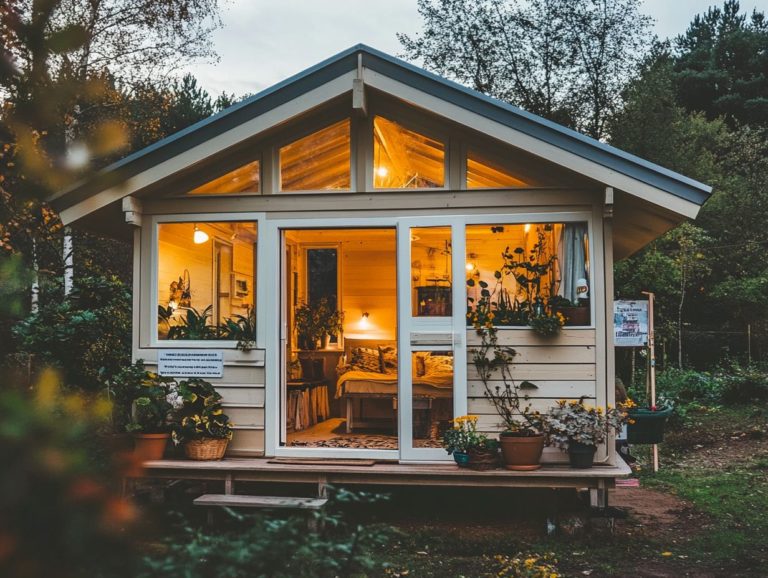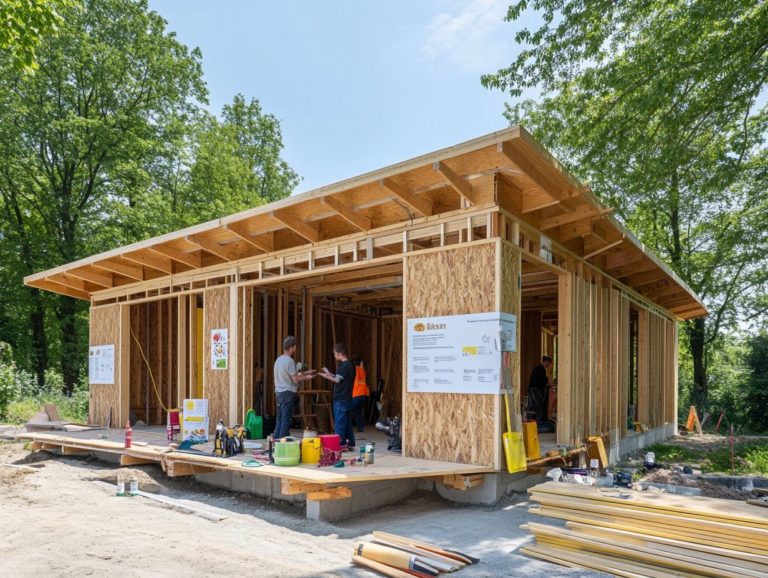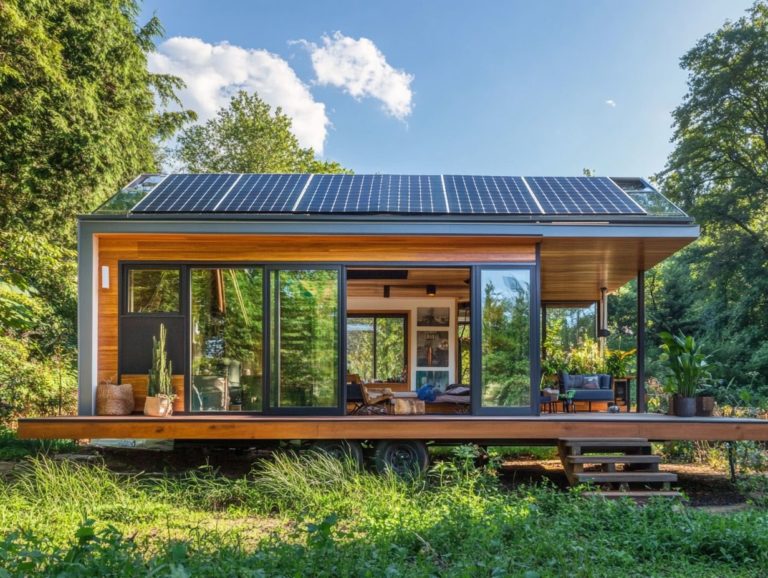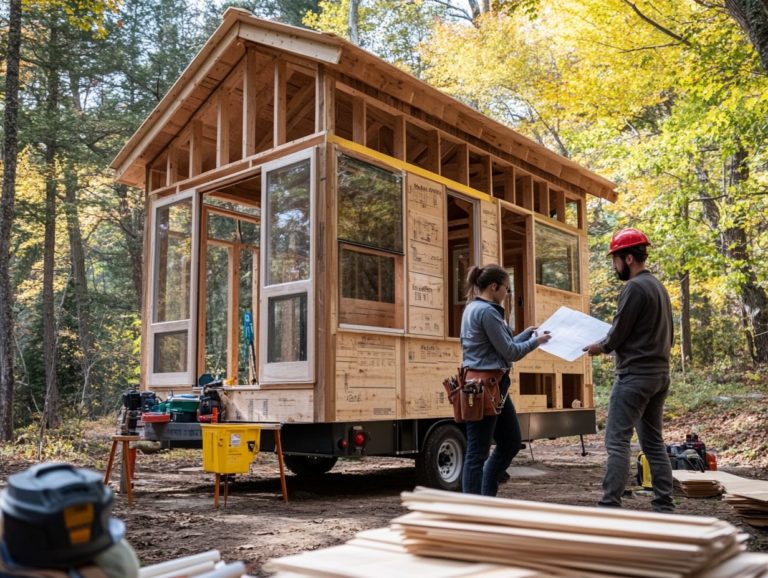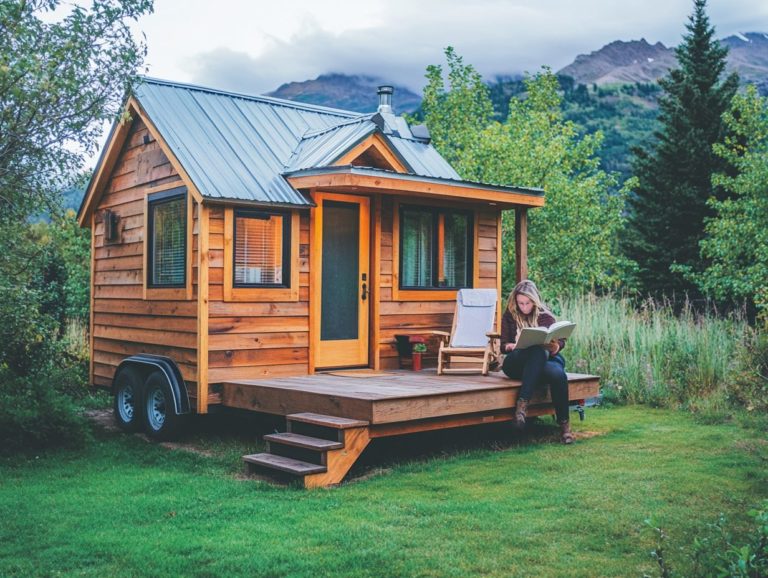Tiny House Living and Legal Liability
Tiny house living transcends mere trend; it embodies a lifestyle choice that grants you both freedom and simplicity.
More people are drawn to the financial and environmental benefits of downsizing. However, navigating the legal landscape can present its own set of challenges, from zoning laws to insurance requirements.
This article explores the advantages of tiny house living, addresses crucial legal considerations, and provides valuable tips for those eager to embrace this distinctive way of life.
Curious about tiny homes? The journey to a simpler, more adventurous life awaits you let’s dive in!
Contents [hide]
- Key Takeaways:
- Benefits of Tiny House Living
- Legal Considerations for Tiny House Living
- Navigating Legal Issues for Tiny House Dwellers
- Alternative Living Options
- Frequently Asked Questions
- 1. What is legal liability in the context of tiny house living?
- 2. Do I need to obtain any permits or licenses to live in a tiny house?
- 3. Am I legally liable if someone gets injured on my property because of my tiny house?
- 4. Can I be sued for not complying with building codes in my tiny house?
- 5. Are there any legal concerns related to parking a tiny house?
- 6. Can I legally rent out my tiny house as a vacation rental?
Key Takeaways:
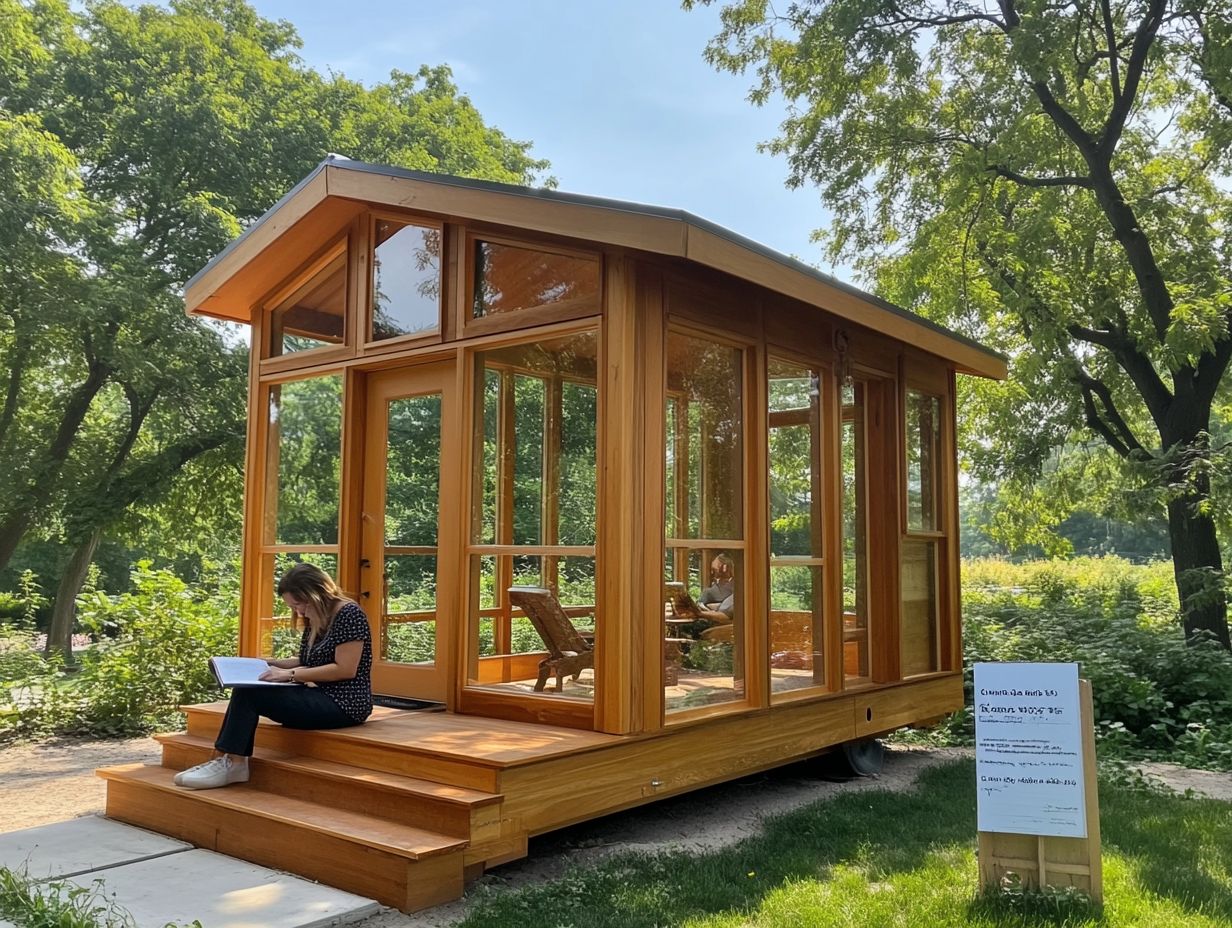
- Tiny house living offers financial and environmental benefits, such as lower utility costs and a smaller carbon footprint.
- Zoning and building codes can be a major legal consideration for tiny house dwellers, and insurance and liability should not be overlooked.
- It is important for those living in tiny houses to educate themselves on legal issues and utilize resources, such as legal advice and alternative living options, to navigate any potential challenges.
What is a Tiny House?
A tiny house, often referred to as a tiny home, is a compact dwelling typically ranging from 100 to 400 square feet. It embodies the philosophy of minimalism and efficient living. The Tiny House Movement, which promotes living in significantly smaller homes, encourages you to downsize your living space, helping to reduce your environmental footprint, enhance your financial freedom, and embrace a simpler lifestyle.
These homes can be built on wheels for mobility or on a foundation for permanence, catering to a variety of living preferences and needs.
Tiny houses make use of designs that serve multiple purposes, like furniture that can fold away, maximizing every square inch. This innovative approach creates a cozy living space and minimizes clutter, making your daily activities much more manageable.
The benefits of adopting this lifestyle extend beyond aesthetics. Many discover that it fosters a sense of community and connection through shared experiences and resources. Advocates often highlight decreased living costs and a greater emphasis on experiences over possessions as key motivators for their transition. Additionally, couples interested in tiny house living should consider the legal considerations for couples involved in tiny house ownership.
Whether you envision a sleek minimalist structure or a rustic tiny cabin, the diversity within the tiny house spectrum continues to inspire those seeking a meaningful and sustainable way of life.
Benefits of Tiny House Living
Embracing the tiny house lifestyle offers you a wealth of advantages, from significant financial savings to enhanced environmental sustainability.
This choice not only provides affordable housing options but also resonates with a diverse range of individuals, making the tiny house movement increasingly appealing.
Financial and Environmental Advantages
The financial and environmental benefits of tiny homes are truly compelling. By choosing a tiny home, you cut down on living expenses and adopt a sustainable lifestyle that significantly reduces your ecological footprint.
With a tiny home, you can enjoy much lower mortgage payments thanks to the reduced cost of purchasing or financing a smaller space. This opens up opportunities for you to funnel those savings into investments or bolster your savings account. Understanding your rights as an owner is crucial, so consider exploring tiny house ownership legal rights.
Additionally, these compact dwellings often come with reduced property taxes, making homeownership more accessible. To fully understand their benefits, it’s important to consider tiny house regulations and building practices. Their smaller size means lower utility bills, as less energy is needed to heat or cool the space, enhancing overall energy efficiency.
But it s not just about the financial perks. The focus on sustainable living practices helps minimize waste through eco-friendly materials and thoughtful designs, encouraging you to embrace a lifestyle that respects both your budget and the environment.
Ready to embrace the tiny house lifestyle? Let s get started on your journey today!
Legal Considerations for Tiny House Living
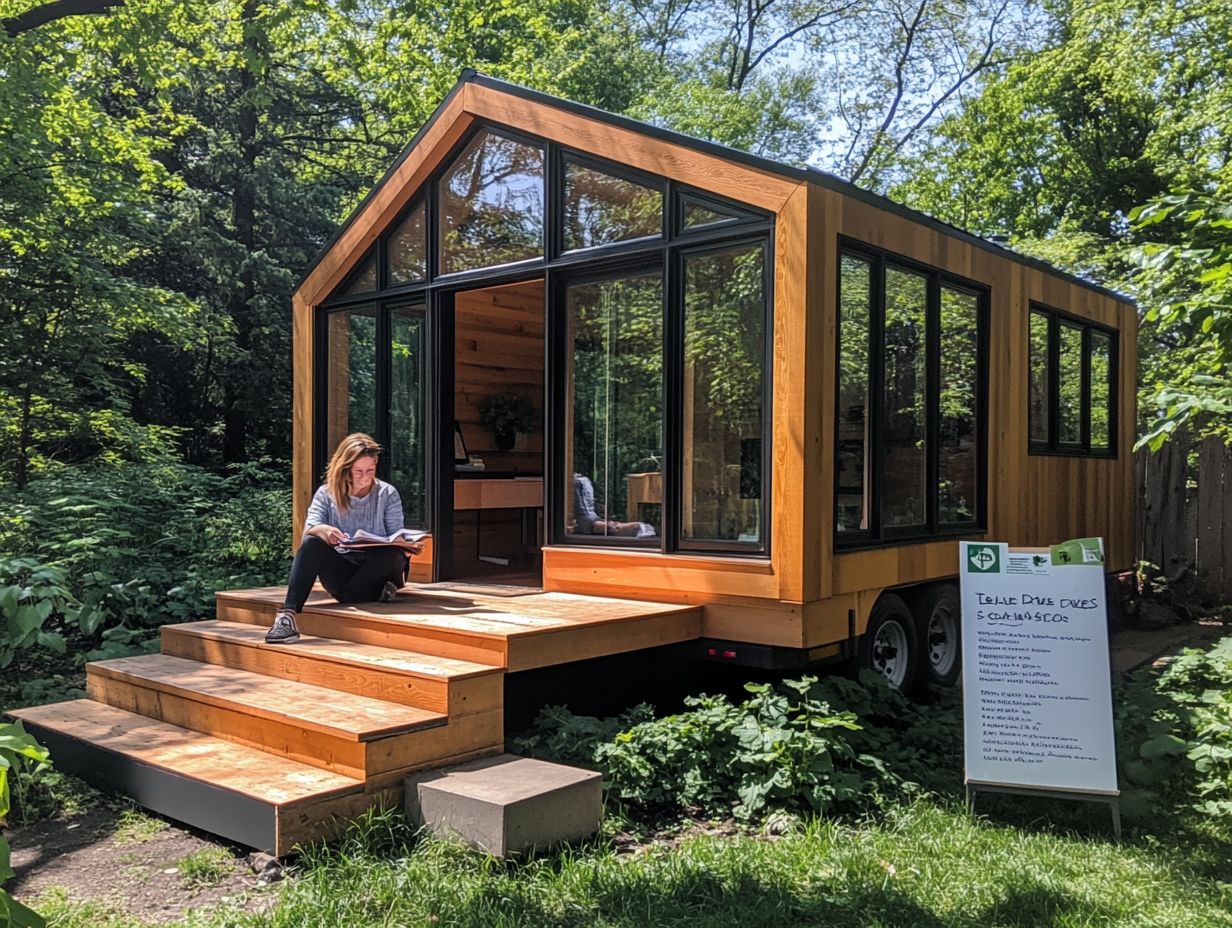
Understanding the legal considerations for tiny house living is essential. Different jurisdictions impose varying zoning regulations, building codes, and laws that can significantly affect where and how these homes can be situated and inhabited.
By navigating these complexities, you can ensure a more harmonious and compliant tiny living experience.
Zoning and Building Codes
Zoning regulations are rules that dictate how land can be used. Building codes significantly impact the legality of tiny houses, whether they re on wheels or on a foundation. Understanding these codes is crucial for anyone considering the tiny home lifestyle.
Tiny houses on wheels face a different set of regulations than those built on foundations. Many jurisdictions classify these mobile structures as recreational vehicles, which might exempt them from certain building codes but can also restrict where you can park them long-term. To navigate these complexities, it’s important to understand the legal myths of tiny house living.
On the other hand, tiny homes anchored to a foundation typically must adhere to local residential zoning laws, which govern aspects like size, utility connections, and aesthetic standards. While navigating these challenges such as securing permits can be daunting for aspiring tiny homeowners, a solid understanding of the legal status of tiny houses and working closely with local planning commissions early in the design process can pave the way for compliance and encourage innovative housing solutions.
Insurance and Liability
Insurance and liability considerations for tiny houses are essential for safeguarding your investment against unforeseen incidents and legal challenges that may arise during your tiny home journey, especially as you navigate the nuances of the tiny house movement.
As the popularity of these compact dwellings continues to surge, understanding the available coverage options becomes increasingly crucial. For those considering tiny house living, it’s important to be aware of tiny house parking legal guidelines. Explore various types of insurance, including:
- Homeowner’s insurance specifically tailored for mobile or stationary tiny homes.
- Liability insurance to shield you from accidents that might occur on your property.
- Additional coverage for your personal belongings and any structures you might have.
Assessing potential liabilities is essential, as the unique nature of tiny living can introduce specific risks. Implementing safety measures, such as fire prevention systems and secure anchoring, can significantly help minimize those risks. Furthermore, understanding the importance of zoning is crucial for successful tiny house living.
Don t wait! Secure your tiny home insurance today to live worry-free!
Navigating Legal Issues for Tiny House Dwellers
Navigating legal issues as a tiny house dweller demands a keen awareness of state regulations, local planning commissions, and the distinctive challenges that arise within tiny house communities. By staying informed, you can ensure compliance while fully embracing the myriad benefits of tiny living.
Tips and Resources
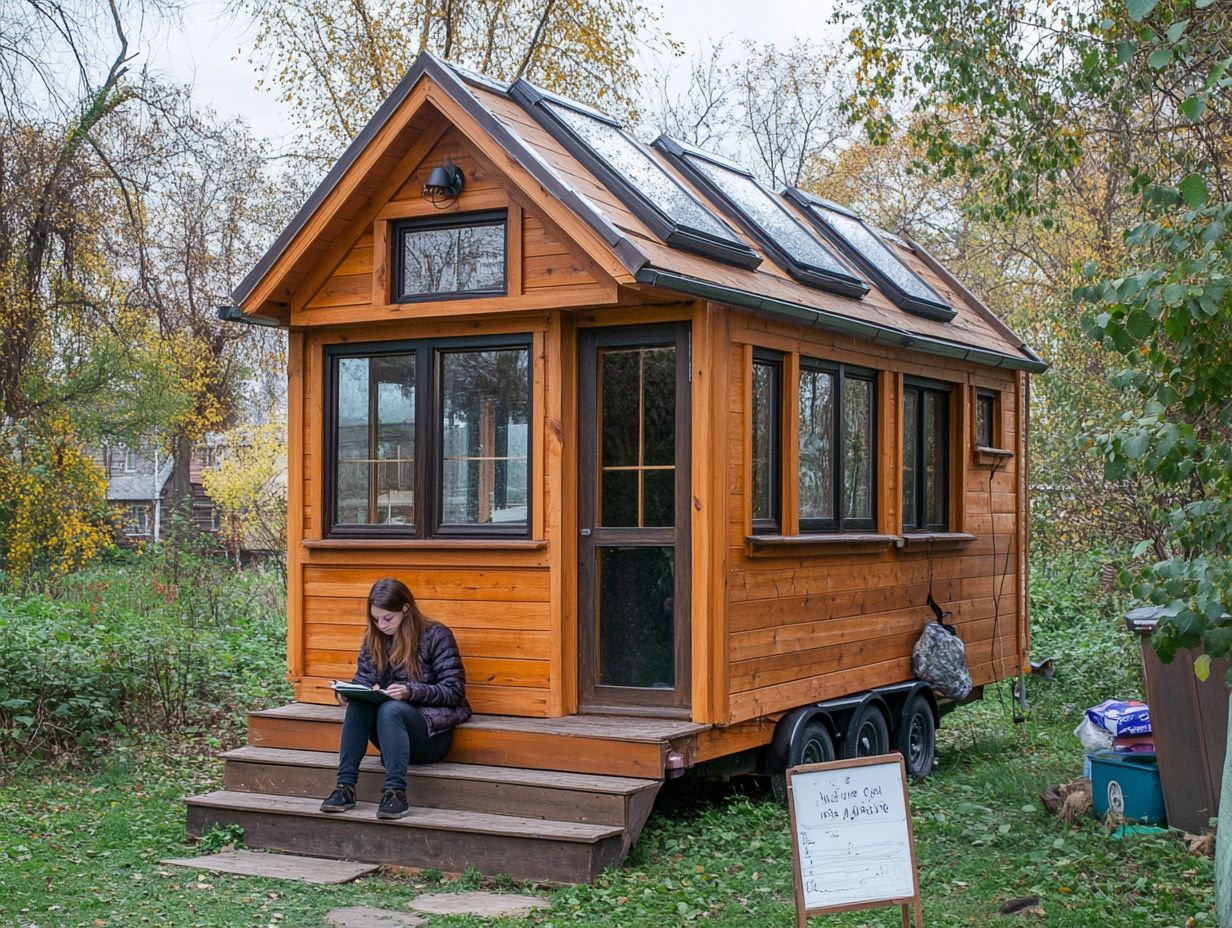
For those contemplating tiny house living, having access to the right tips and resources can make navigating the intricate legal landscape significantly easier and more manageable.
Whether you’re just starting out or have been part of the tiny house community for some time, grasping zoning laws, building codes, and the complexities of permits can feel overwhelming. By connecting with organizations that specialize in the tiny house movement and legal challenges, you can find guidance tailored specifically to your needs. Engage in community forums to share valuable insights and experiences, contributing to a rich pool of collective knowledge.
Educational materials and workshops focused on tiny house construction, sustainability, and financial planning can also offer immense benefits. Additionally, being aware of tiny house residency laws you should know is crucial. Ultimately, fostering connections with like-minded individuals not only deepens your understanding but also cultivates a supportive network essential for thriving in this distinctive lifestyle.
Alternative Living Options
Alternative living options, like accessory dwelling units and other compact living solutions, present you with exciting avenues to embrace a simpler, more sustainable lifestyle akin to the principles of the tiny house movement.
Exploring Other Small Living Solutions
If you want affordable housing and a minimalist lifestyle, exploring small living solutions can provide valuable insights.
Consider container homes that turn shipping containers into unique living spaces. RV living is another option that offers flexibility and mobility.
Co-housing arrangements can be appealing too. They promote community living and shared resources, helping reduce expenses.
Each option has its benefits like lower impact on the environment and cut costs. However, challenges such as zoning laws and lifestyle changes may arise.
Frequently Asked Questions
You ve got questions, we ve got answers! Let s dive in.
1. What is legal liability in the context of tiny house living?
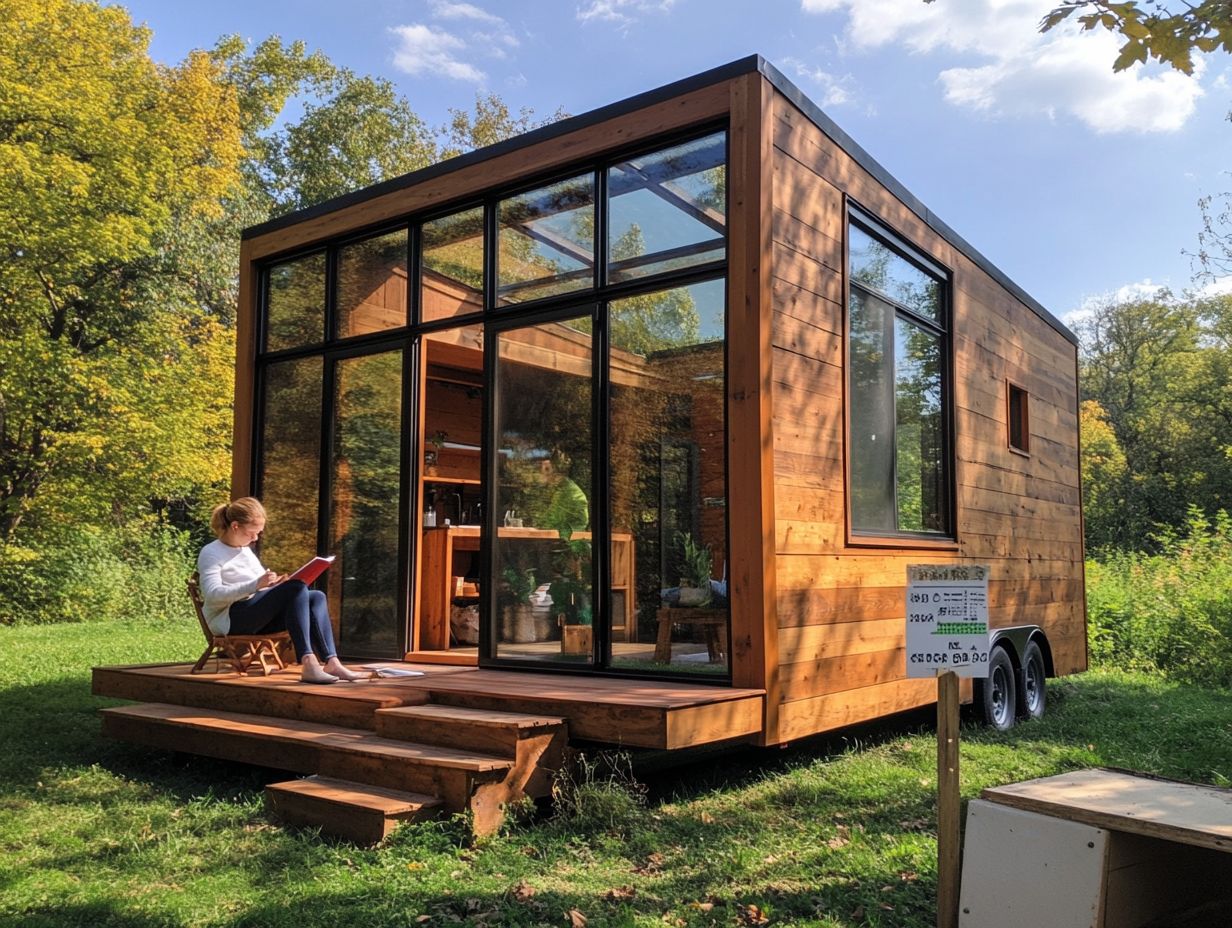
Legal liability means being responsible for actions that can harm others. In tiny house living, this relates to legal consequences from ownership or residency.
2. Do I need to obtain any permits or licenses to live in a tiny house?
Regulations for tiny house living vary by location and whether the house is stationary or on wheels. In most cases, you will need to obtain permits and licenses for zoning, construction, and occupancy.
3. Am I legally liable if someone gets injured on my property because of my tiny house?
Yes, as a property owner, you are responsible for ensuring the safety of anyone on your property. If someone is injured due to unsafe conditions related to your tiny house, you may be held legally liable.
4. Can I be sued for not complying with building codes in my tiny house?
Yes, failing to follow building codes and regulations set by your local government can lead to legal consequences. This may include fines or requiring you to remove your tiny house.
5. Are there any legal concerns related to parking a tiny house?
Yes, parking a tiny house can present legal challenges, especially if it’s on wheels. You must obtain permission from a landowner and comply with zoning laws to ensure the parking location is safe and legal.
6. Can I legally rent out my tiny house as a vacation rental?
Regulations for renting out a tiny house as a vacation rental vary by location. Typically, you will need to obtain a permit or license and comply with zoning laws to avoid legal consequences.


